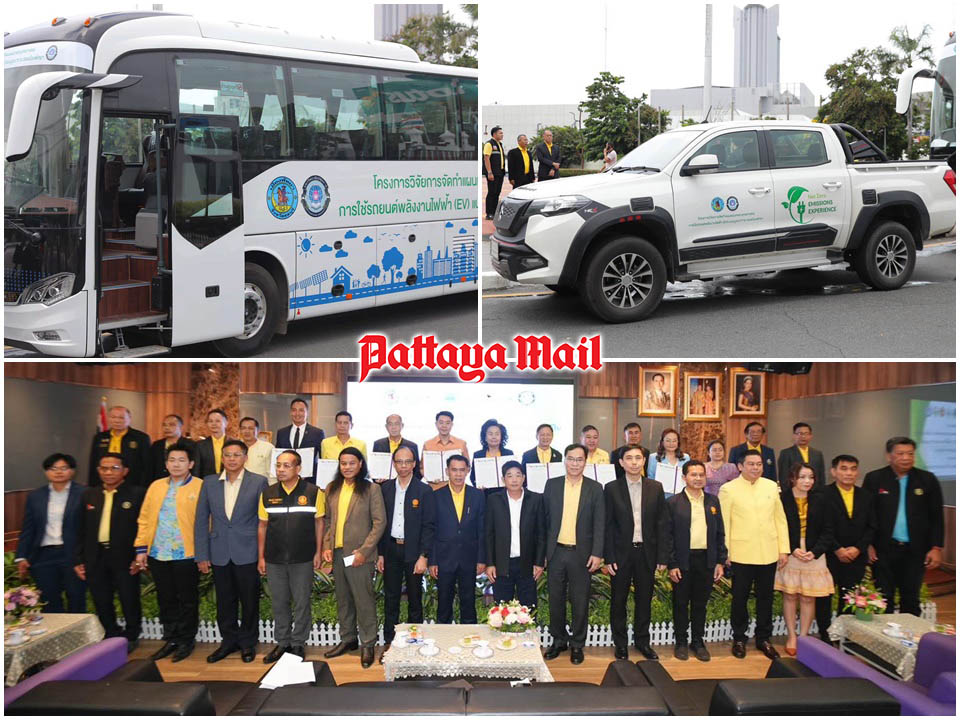
PATTAYA, Thailand – On August 9, Pattaya City officials formalized a commitment to sustainability by signing a Memorandum of Understanding (MOU) aimed at developing a master plan for the integration of electric vehicles (EVs) into local government operations. The agreement is part of a broader initiative to enhance public services and activities in “Pattaya City and Model Municipalities.”
The MOU reflects the government’s policy on renewable and alternative energy, which focuses on reducing electricity and fuel costs within public offices. This policy also promotes the creation of model local government organizations that efficiently utilize alternative energy sources.
Key elements of the MOU include the development of local strategies to lower fuel expenses, the transition from fuel-powered vehicles to electric vehicles, and the establishment of EV charging stations in strategic public locations.
“The MOU is a significant step towards integrating EV technology into our municipal operations,” said Mayor Poramet Ngampichet. “By collaborating with the private sector and local government organizations, we aim to create a more sustainable and efficient public transportation system, enhancing the quality of services for our citizens.”
Dr Chanakarn Yuenyong, President of Pathum Thani University, and Dr Phunot Salatthuk, Secretary of the Research Project on EV Testing and Model Municipality, also signed the MOU. Their participation underscores the collaborative effort to prepare electrical infrastructure and support government policies.
The signing ceremony was attended by municipal executives, department heads, members of the Pattaya City Council, and other distinguished guests. The initiative is expected to significantly improve service quality and facilitate greater access to public services through the adoption of electric vehicles.
“The integration of EVs will not only support environmental sustainability but also enhance the efficiency of public services,” Dr Yuenyong noted. “We are excited to be part of this transformative project that aligns with our commitment to innovation and environmental stewardship.”








